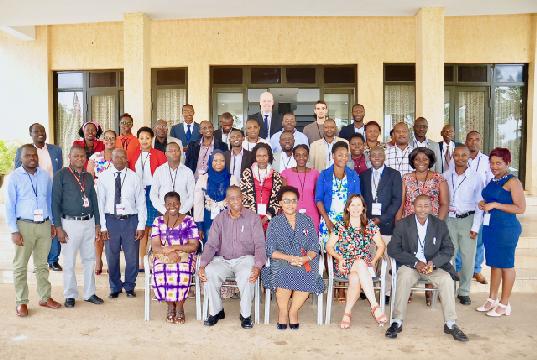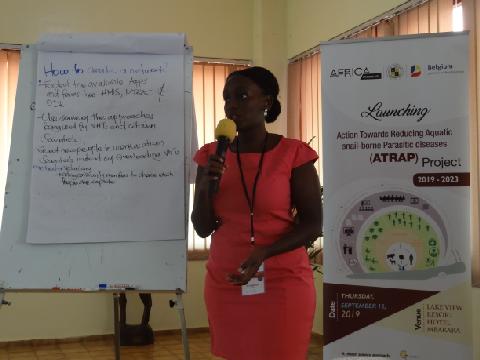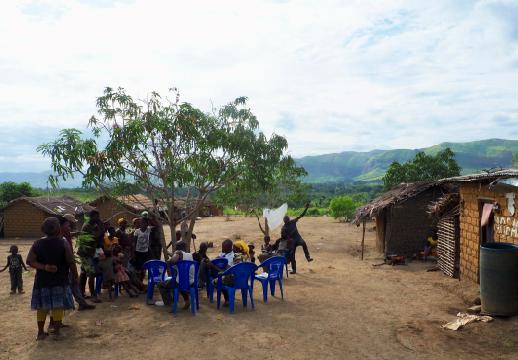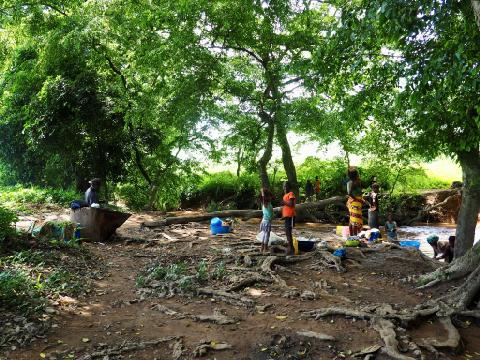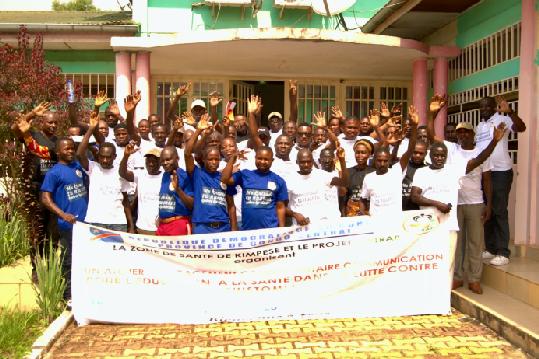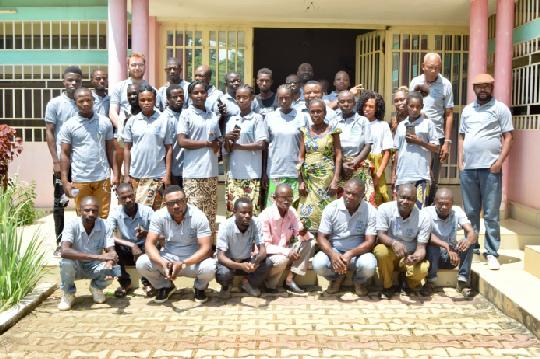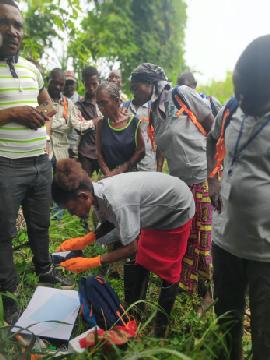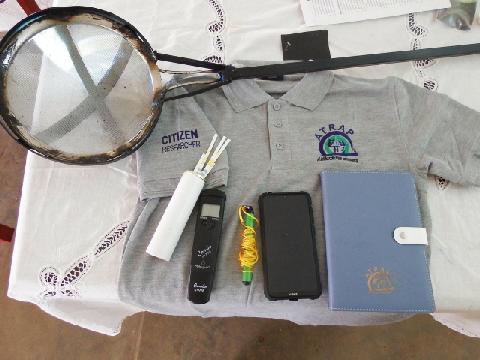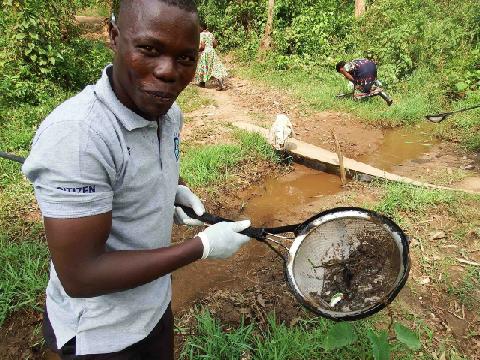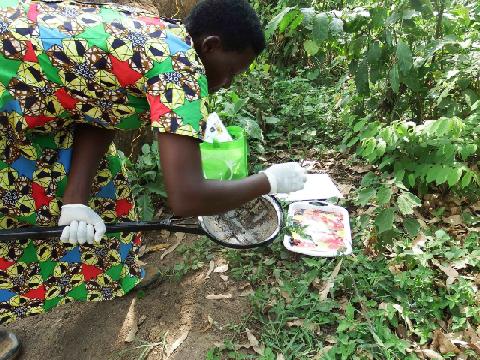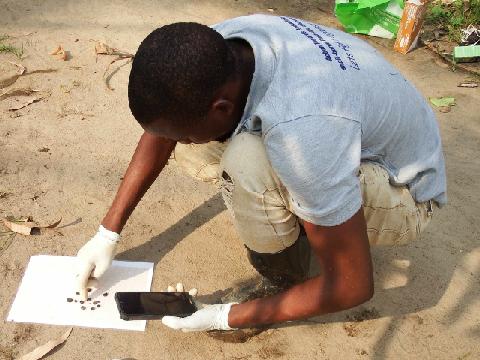Personeelslijst
Olivier Dewitte
Natuurlijke risico’s
ATRAP
Summary
Snail-borne diseases, including schistosomiasis, form a major public and veterinary health burden, especially in sub-Saharan Africa. Despite regular mass drug administration schistosomiasis continues to (re-)emerge. Research demonstrated that a limited knowledge, risky water practices, and negative attitudes and beliefs about schistosomiasis increase the risk of infection. Therefore, snail control and health education are essential components of elimination programs. In this project we want to develop a novel snail monitoring approach that can be executed by non-specialists: citizens will be actively involved in snail monitoring, but will also act as communicator to the wider community. Apart from effective sensibilisation and education, this ‘citizen science’ approach will allow to significantly increase the scale and resolution of snail monitoring, generating the much-anticipated ecological data to create reliable risk maps and help policy makers in targeted snail control.
The project is centered around the scientific objective of better understanding fresh-water snail (vector) dynamics using a research team consisting of citizen scientists, health workers and MSc/PhD students from Uganda/DR Congo and Belgium. ATRAP also has a strong capacity building and research dissemination component.
More information on our Ugandan network
More information on our Congolese network
Notes from the Field
September 2019 – Official launch of the ATRAP project in Uganda
On the 12th of September, the ATRAP project was officially launched in Uganda. Together with all district health officers, environmental officers, health educators, Ministry of Health representatives and local NGOs involved in the communities, the ATRAP team organised a roundtable discussion. This coming-together of a myriad of stakeholders allowed the team to address the question on how to create a sustainable network on the prevention of snail-borne diseases in Uganda. The first milestone of ATRAP-Uganda was set. From hereon on, the process of increased community involvement and awareness-raising could commence.
November 2019 – Official launch of ATRAP in the DRC, accompanied by a prospection tour to visit the communities and engage with prospective citizen scientists in the Kimpese Health Zone.
A couple of months after the launch in Uganda, the Congolese branch of ATRAP was kicked-off. This occasion allowed us to gather all involved stakeholders and discuss how we could ensure a sustainable progress of the project. Subsequent to the kick-off, a prospection tour in the Kimpese Health Zone was organised. This tour allowed us to meet various communities who are affected by schistosomiasis, a parasitic disease transmitted by certain snail species and locally known as bilharziozi. During this tour, we aimed to get a better grasp of the study area while communicating ATRAP’s goals. Of course, it was important to lay out how the involved communities could benefit from and contribute to the project. While Jean de Béthel interviewed several people from the village on their interest to participate in the project as a citizen scientist, Germain and Thibaut went out to discover neighbouring water contact sites that potentially harbour snail hosts of the parasitic disease. After our intensive ten-day tour, we choose to retain twenty-five villages that well represent the region in terms of endemicity, demographics, cultural differences and history with other health-related projects.
January 2020 – Community-engagement workshop with village chiefs in Kimpese (DRC)
With our twenty-five citizen scientists selected from the Kimpese Health Zone, a network is starting to arise. But to ensure a sustainable future for the project, we organised a workshop to engage the community leaders and come up with a strategy for health-related communication which can be deployed by the citizen scientists in their community. In that sense, the workshop acted as a platform where concerns could be voiced, ideas could be pitched and project inclusion was forged. Based on the tired, but happy faces on the picture, we can say this two-day workshop was quite a success!
March 2020 – Start-up Citizen Scientists Network in Uganda and the DRC
At the beginning of March 2020, the first training workshop for the citizen scientists was organized in both Uganda and the DRC. Since the citizen scientists are responsible for the weekly monitoring of the water contact sites, which are daily used by their community members, they were trained during an intensive three (two)-day program. Here, they acquired the necessary knowledge, tools and skills to successfully report on snail host presence, water chemistry and human activities. Later in the project, the citizen scientists will also be trained to act as community communicators and sensitize their neighbors about the risky water practices that are linked to schistosomiasis infections.
Datum:
2019 2024Medewerkers:
Externe partners:
Dr. Casim Umba Tolo (MUST)Prof Viola Nyakato (MUST)
Prof Grace Kagoro (MUST)
Prof Ronald Twonyirwe (MUST)
Dr. Joule Madinga (INRB, UNIKIN)
Prof. Patrick Mitashi (UNIKIN)
Prof. Bruno Lapika (UNIKIN)
Dr. Placide Mbala (INRB)
Prof Katrien Pype (KU Leuven)
Prof Katja Polman (ITG)
Prof Karolien Poels & Dr. Caroline Masquiller (UA)
